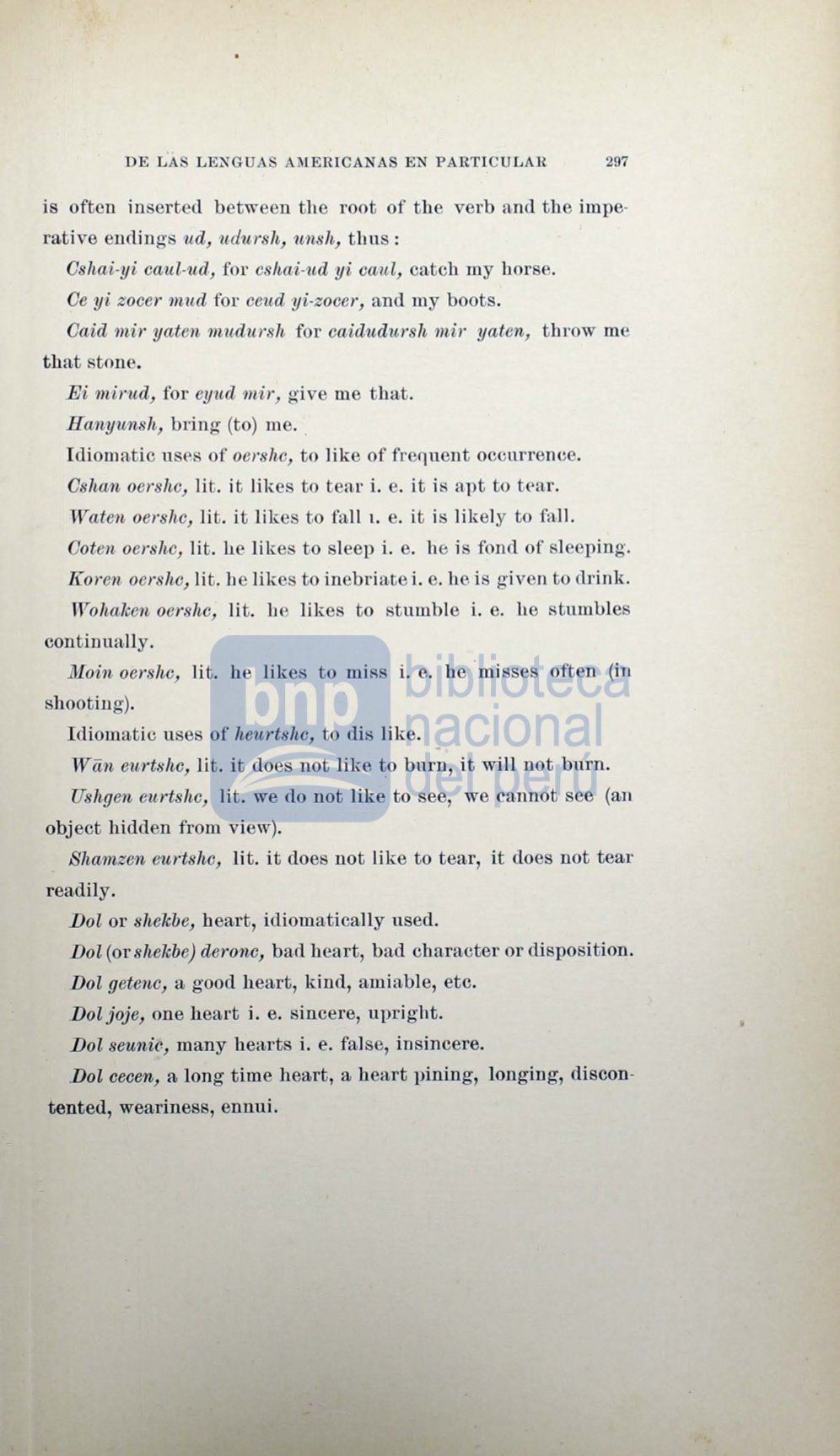

DE LA LENGUAS AMERICANAS EN PARTlCULAR
297
is oftcn inserted between the root of the verb and the impe–
ra.tive endings
ud, iidursh, mish,
thus:
Oshai-yi caul-ud,
for
cshai-ud yi caiil,
catch my borse.
Ge yi zocer 11iiid
for
ceiid yi-zocer,
and my boots.
Oaid
mil'
yaten 11mdursh
for
caidudursh
inÍI'
yaten,
tbrow me
that stone.
Ei miriid,
for
eyud mir,
give me that.
Hanyunsh,
bring (to) me.
Idiomatic uses of
oershc,
to like of fre<]uent occurrence.
Oshan oershc,
lit. it likes totear
i.
e. it is
a.pttotear.
Waten oershc,
li t. it likes to fall
1.
e. it is likely to fall.
Coten oershc,
lit. he likes to sleep i. e. he is foncl of sleeping.
Koren oershc,
li t. be likes to inebriate i. e. be is given to clrink.
Wohalcen oershc,
lit. be likes to stumble i. e. he stumbles
contiuually.
Moin oershc,
lit. he likes to miss
i.
e. he ·misses often (in
shooting).
Idiomatic uses of
heurtshc,
to dis like.
Wan eurtshc,
li t. it does not like to burn, it will not burn.
Ushgen ew·tshc,
li t. we do uot like to see, we cannot see (an
object hidden from view).
Shamzen eurtshc,
lit. it does not like to tear, it does not tear
readily.
Dol
or
shelcbe,
heart, idiomatically used.
Dol
(or
shelcbe) deronc,
bad beart, bacl character or disposition.
Dol getenc,
a good heart, kind, amiable, etc.
Dol .foje,
one heart i. e. sincere, upright.
Dol seunic.,
many bearts i. e. false, insincere.
.Dol cecen,
a long time heart, a beart pining, longing, cliscon–
tented, weariness, ennui.
















